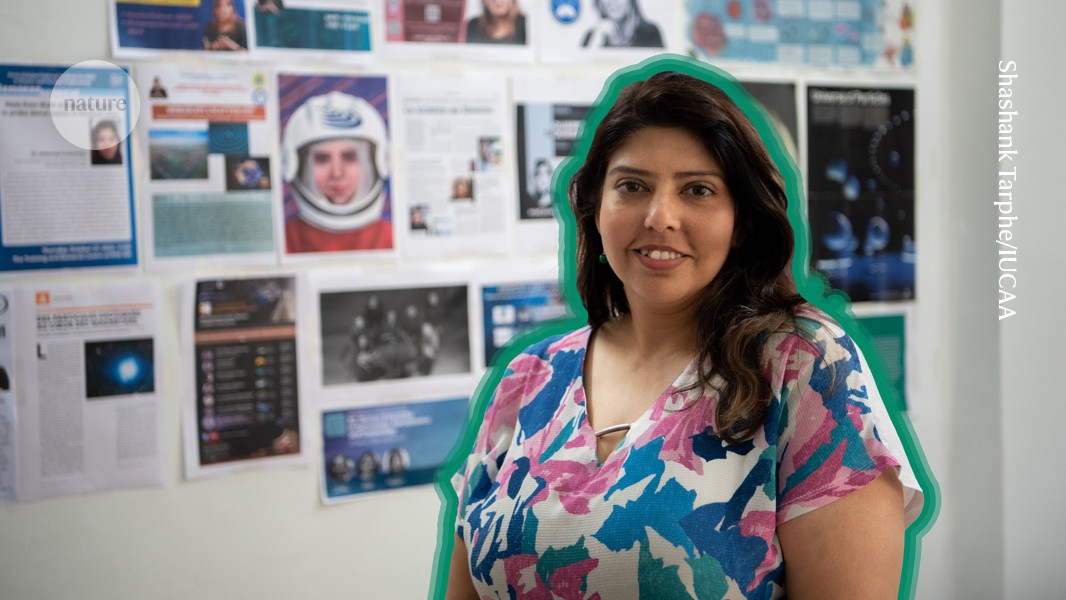
"Chatterjee works in the emerging and male-dominated field of gravitational-wave science. She studies neutron stars - ultra-dense cores that are left over when massive stars collapse - by looking at gravitational waves, or ripples in the fabric of space-time. It's an approach that brings together several disciplines, including nuclear, particle and condensed-matter physics. On her return to India in 2020, she joined the Inter-University Centre for Astronomy and Astrophysics (IUCAA) in Pune."
"In June, the 45-year-old was promoted to full professor, becoming the first woman to be awarded this role in the institution's 37-year history. Her research group generates complex theoretical models to crack the mystery of the interior composition of neutron stars. She also wants more women to pursue science subjects, especially astrophysics, and has held various roles to promote gender equity."
Debarati Chatterjee studies neutron stars by analyzing gravitational waves, integrating nuclear, particle and condensed-matter physics. She witnessed domestic violence as a child and experienced sexual harassment during undergraduate and PhD studies. She is among roughly 20% of astronomers who are women. She left India for a postdoctoral position in Germany in 2010 and observed race, class and gender prejudices in the international scientific community. She returned to India in 2020 to join IUCAA in Pune and was promoted to full professor in June, becoming the institution's first female full professor. Her group builds complex theoretical models to probe neutron-star interiors and she leads initiatives to promote gender equity and public science engagement, including committee work on sexual-harassment prevention, campaigns highlighting pioneering female Indian scientists, and launching the Indian Pint of Science festival.
Read at Nature
Unable to calculate read time
Collection
[
|
...
]